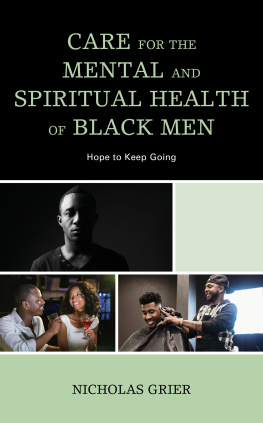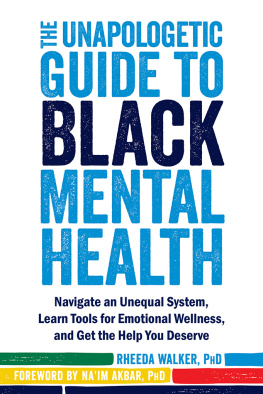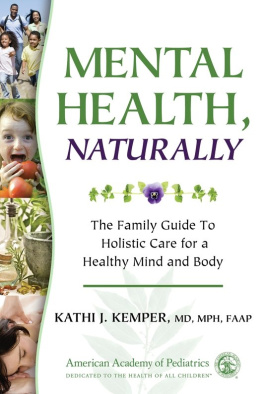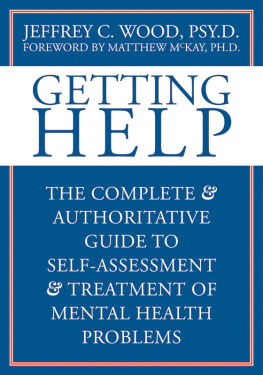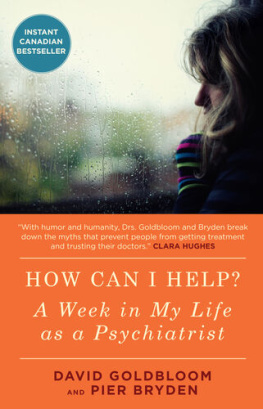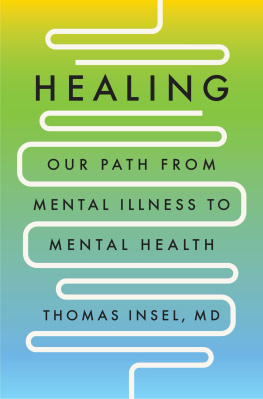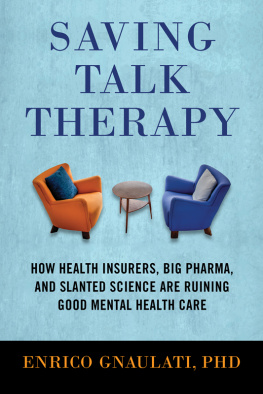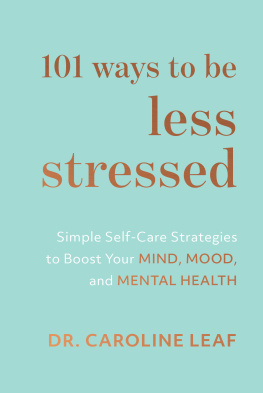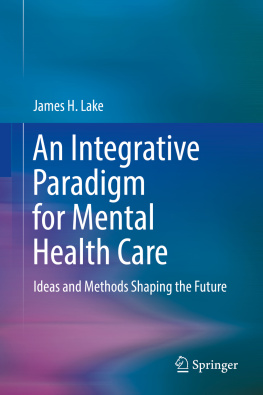For Patsy, Trevor, and Tram-Anh
Contents
In early spring of 2020, a longtime patient reached out to shake my hand as our therapy session came to a close. Almost immediately, he realized his blunder.
How long do you think well be doing this? he laughed, as he bumped his elbow against mine.
I could only shrug in reply. At the time, the United States was just beginning to see the rise of COVID-19 cases, but I had no idea the coronavirus pandemic was about to ripple across the world like an earthquake, changing the entire health-care landscape, including mental health delivery as we once knew it. I also could not have predicted that, because of infection control mandates, Id have to close my office to in-person visits a few weeks later. Life was changingand quickly. I began to see my patients virtually, doing what I could to connect with them through tablets and screens. I also had to put many of my favorite wellness practices on hold, including my regular visits to the yoga studio, and more carefully consider how to encourage my patients to continue their own self-care regimens.
As the novel coronavirus continued to spread across the country, I, like many other mental health professionals, noticed an uptick in requests for new appointments. There were many reasons for that. Some people felt increasingly isolated by stay-at-home orders and social distancing guidelines. Others were having trouble adjusting to working from home or struggling to manage their kids as they attended online school. Some were just worried about the virus and its potential long-term impact on their families or businesses. People were coping as they could; yet, for far too many, the situation lent itself to increased anxiety and negative thinking. In some cases, I also saw substance misuse relapses as people turned to alcohol or drugs to help manage their stress.
COVID-19 was far from the only problem haunting the country. In the wake of George Floyds and Breonna Taylors murders by police, xenophobia against Asian Americans, and a chaotic news cycle, images of brutality and overt civil unrest were delivered into our homes each day. Not only were we getting a daily dose of the thousands of people dying from this new and insidious virus, but we were also watching the cumulative physical and emotional trauma of millions of Americans of color being played out on our smartphones and television sets. The combination took a heavy toll on all of us, and soon mental health was on everyones mind. We thought about it more, even if we werent always talking about it. Although this book was years in the making, the turbulent events of 2020 led me to reassess the state of my own mental health, while simultaneously treating patients in my outpatient practice. It became even more vital that I record my thoughts about the importance of self-care and mental health maintenance on paper.
My work offers me the opportunity to hear so many storiestreating patients in my office, as well as hosting conversations about mental health with athletes, musicians, actors, and journalists in an effort to help reduce mental health stigma. Many of these discussions involve people who have grappled with depression or sleep difficulties, or have experienced a rocky relationship at home. Some people just need someone to talk toa neutral sounding board, someone with whom they can safely blow off steam as they work through their thoughts and feelings.
Practicing psychiatry is humbling, even in the best of circumstances. No psychiatrist is omniscient, and as the mind is such a perplexing entity, we need to be open to different ways of thinking as well as different ways of addressing common issues. I learn quite a bit from my patients as well as from people outside my clinic that I have conversations with about mental health. Id even go so far as to say, some days, these conversations are almost a form of therapy for me, the person who is supposed to be giving the advice. Sometimes one of my patients will share a personal insight and Ill think: Thats an interesting idea, I havent thought about things quite that way before. Or: Thats a great approach to better managing that thought. It sounds like something I should try. I found myself listening for those nuggets of wisdom more than ever during the summer of 2020, as the Black Lives Matter movement and widespread protests against racial injustice seemed at their height. As one of the few Black psychiatrists in the United Stateswe make up less than 5 percent of the field, all toldit felt like everyone wanted to know my take on things. My patients, my friends, and even some reporters in the media wanted my insights about the effect race has on mental health, as well as how we might learn to better understand and communicate with one another in order to more effectively address racial injustice. Almost every day, when I was alone, Id ask myself those same questions again and againand struggle to come up with concrete answers. I tell you this because, in order to be in a better position to both give and receive advice, its important to admit that we dont have all of the answers.
I dont have all of the answers.
That said, my role is to help my patients find their own purpose, balance, contentment, and hope by sharing what I know about medicine, science, and faith. In doing so, I hope they will understand why living with mental health can bring them closer to fully experiencing the moments of happiness that come along with it. While professional mental health care can be a vital part of this journey, it is not the only factor at play. The bulk of patients dont see their psychiatrist that often, for a number of factors including demand and health insurance restrictions.
Sometimes its once a week, but more often its once a month or even less. If youre meeting with a therapist who isnt authorized to prescribe medications, typically visits are more frequent, but they can also be expensive unless you have expendable income or exceptional health insurance. Thats why its so important to understand that the life you live off your therapists couch, in those days and hours between sessions, is really where the most important work takes place. Thats the place where acts of self-care canand willmake a big difference to your overall mental and physical well-being.
Taking the Objective Approach
Mental health care is a nuanced fieldto the point where some have argued its as much an art as it is a science. I remember, early in my training, I asked my favorite mentor which antidepressant I should prescribe for a particular patient. I was surprised when she replied with a confident grin and her warm, Southern drawl, Six of one, half a dozen of the other. Doctor, you pick.
I dont share this story to suggest that practicing psychiatry is rolling the diceor that all antidepressant medications are interchangeable. Rather, I share it because the brain is complex. People are complex. The different treatment options available areyou guessed italso complex. So, as you work to help someone struggling with mental illness, there are a wide variety of options for determining how to best proceed. You quickly see that our thoughts, feelings, and behaviors are not solely the result of neurochemical shifts in the brain. Its not that simple. The context matters a great deal, and it must be considered as we look for ways to help ourselves and the people around us feel better.
In medical school, I learned about the scientific method, how to read and interpret clinical data, and the importance of supporting my opinions with facts. Physicians are trained to think objectively. In fact, while I was rotating at a community hospital in Houston as a third-year medical student, the senior faculty members loved to quiz us about complex medical cases. As we presented to themand tried to explain what we thought the issue might bewe could count on being asked, What is your evidence for that assertion? Trying to answer with a feeling, an inclination, a medical story, or even clinical experience was not the way to satisfy the gray beards in the long white coats. In fact, such a strategy would likely lead to quick and public embarrassment. It didnt take long for me to learn that, in order to avoid humiliation, your best bet was to stock up on studies. Citing a credible source, say a clinical report from the



